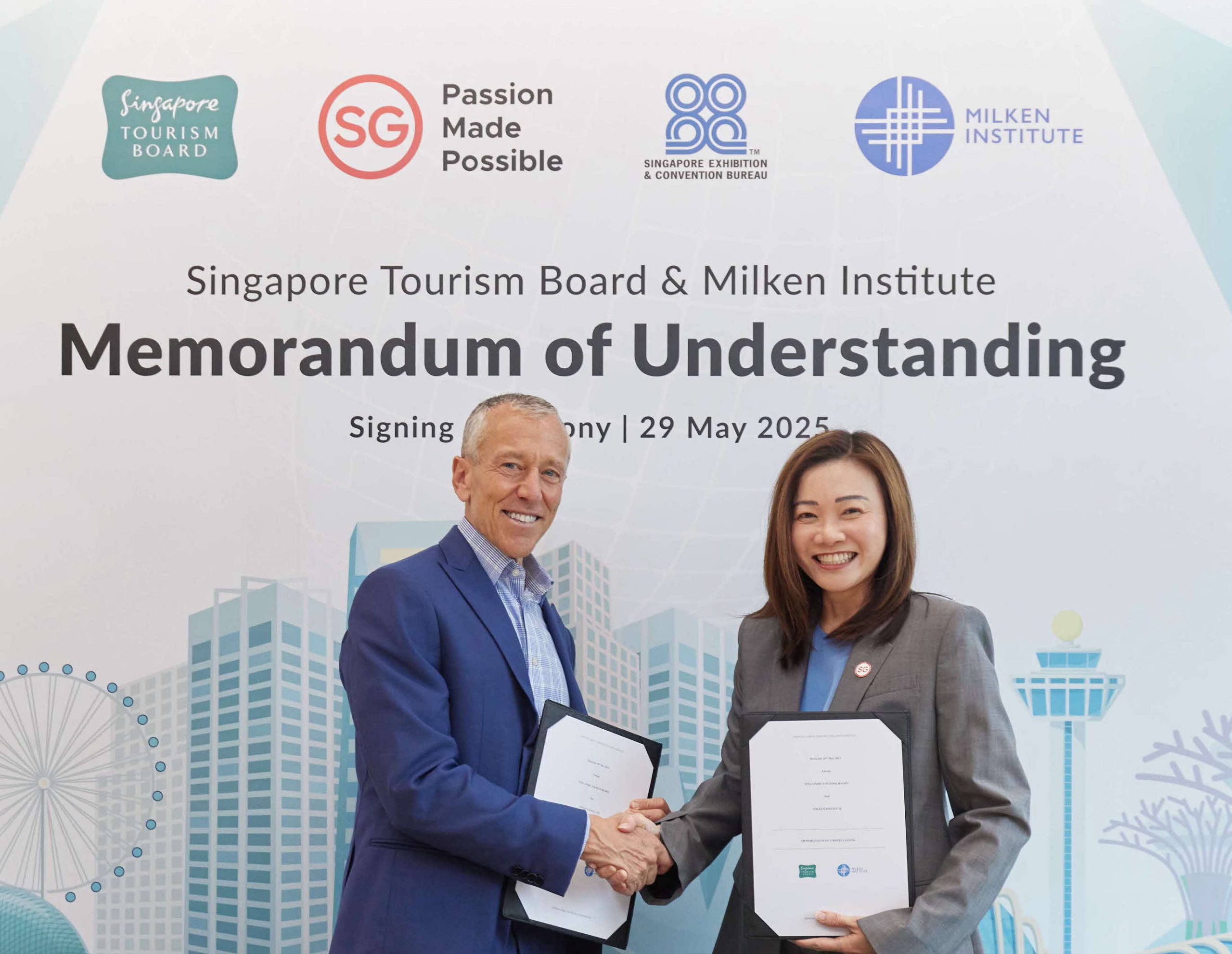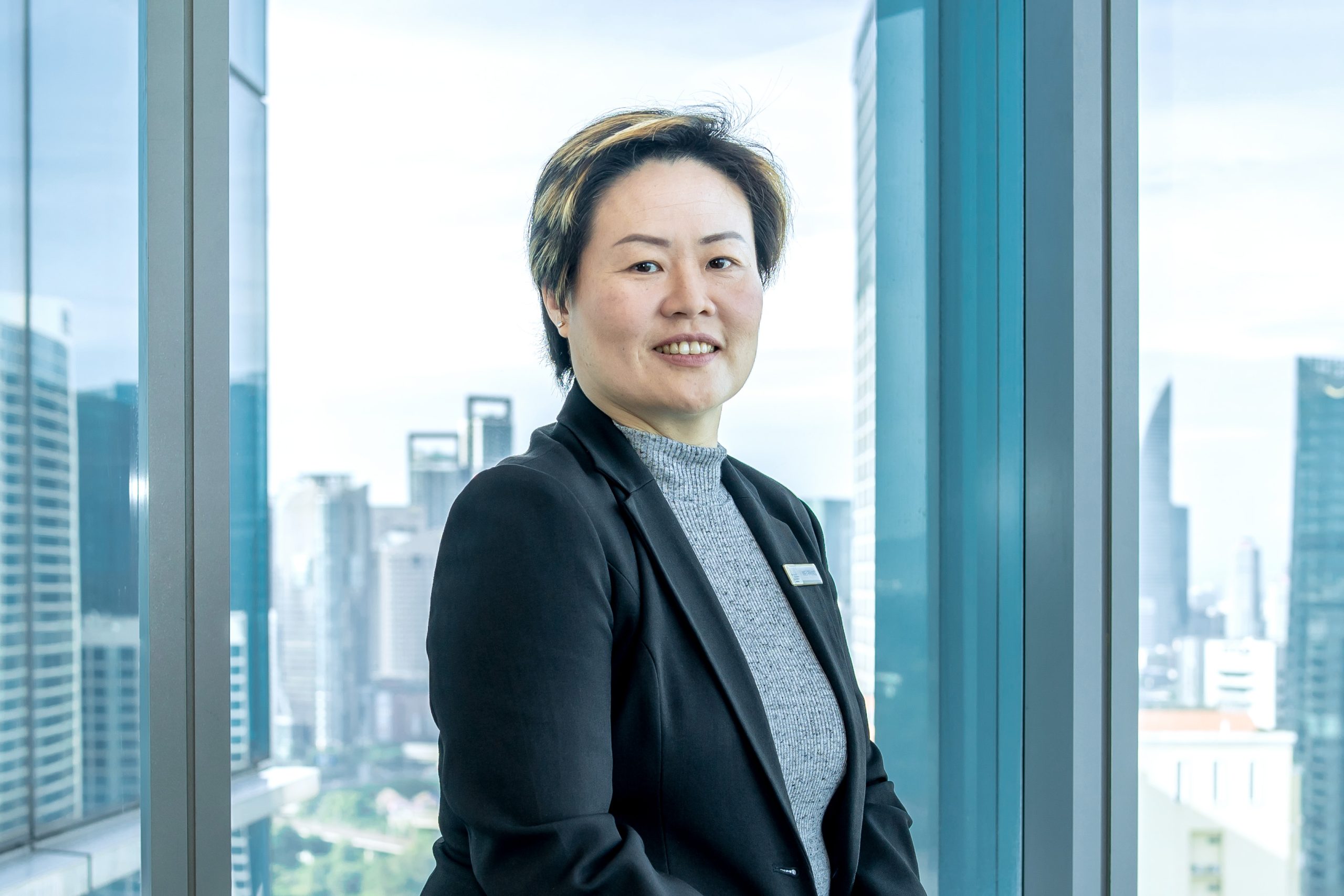Travel brings many rewards, but for many of us, being away from our families can be stressful and even an unwanted source of domestic friction and jealousy.
Years ago, the meetings industry came up with a solution: the “Spouse Programme”. Traditionally this simply meant a few shopping expeditions, perhaps a spa treatment or two and an invite to attend the gala or farewell dinner alongside your other half who was a full participant in the conference or meeting programme.
Spouses were automatically deemed to be female and the programmes reflected a feminine bias toward a stereotypically drawn picture of a middle-aged housewife and mother who, it was presumed, had little reason to be on the trip except to provide company at the networking receptions with other company staff and their wives.
Times have changed. Women are no longer the passive partners or pretty appendages. Female executives have dented if not broken the glass ceiling and the assumptions of a heterosexual nuclear family are shattering in even the most conservative parts of Asia.
Nowadays more delegates are female and the spouse is male. Same-sex partnerships are more open and are recognised in a number of countries where legislation often means that they have the equal status in many employee-benefit programmes of multinational companies.
Destination management companies (DMCs) and professional conference organisers (PCOs) have had to respond to this cultural shift.
Nonetheless, if spouse programmes are no longer what they were, it’s also true that sometimes bringing along a family member simply isn’t appropriate to the kind of event you are putting together.
When looking at the option of adding a spouse programme, Clemson Lo, managing director at MV Destination Management, says that companies need to be realistic about the type of event that is being hosted and the reason for holding it. There are times when significant others simply are not the best idea. “It’s not traditional at academic conferences to have spouses come along,” he says, for two reasons: “One is that it’s not going to be exciting for the spouse to be there, so it’s not something that is appropriate. The other is that at these types of conferences, delegates don’t even have time for themselves, much less for their spouses. There is a lot of networking – it’s not for the purpose of leisure – so again, it’s probably not appropriate.”
However, if bringing along a significant other makes sense, then the sky is the limit for opportunities to engage, inspire and include everyone involved. The first assumption that many make is gender.
Says Suvi Saxén, general manager of MCI Beijing: “The sex of spouses accompanying congress participants varies certainly depending on the age range of the participants and the location. As an average, I would say 60 percent are female and 40 percent male.”
Lo says: “Bringing female spouses used to be the norm, but today that is no longer true.” In fact, recently his team organised an investor forum for women in Asia, and “in that case, all the spouses were male”. Same-sex couples are also becoming more common in groups in every industry, making a one-size-fits-all spouse programme more difficult to organise. Cultural tours, sports, sightseeing and even profession-specific speakers or activities are taking the place of what was once an exercise in shopping and spa days.
With the proliferation of events and conferences held in foreign destinations, the popularity of bringing a spouse along, and the array of activities available, spouse programmes can be almost more successful than the conference itself.
All-inclusive programmes
Inviting family members or spouses along on a work-related events trip can add a welcome element of relaxation, but it can also potentially be a difficulty for those who don’t have a better half or a family in tow. Explains Saxén of MCI’s approach: “All congress programmes are planned so that there is something for everyone, including programmes that unite everyone, both spouses and delegates, as well as a programme for those not attending the congress sessions.”
She also points out that due to the nature of these types of events, those attending by themselves will know in advance that the schedule is punctuated by all-inclusive activities. Saxén explains, “The delegates coming without spouses will be attending mostly for professional reasons and will have colleagues present or plenty of opportunities during social events to make new acquaintances.”
It is important to remember, she stresses, that “this is partly what congresses are about: meeting colleagues, making new contacts, meeting friends and sometimes their families”.
There are certain companies that embrace family events. Bloomberg’s summer fun days are annual events that take place in major hubs such as New York – where it rents out Governor’s Island for the day – or Shark Island in Sydney. Both adults and kids alike are treated to a variety of entertainment activities, and a bouncy castle intended for the young, and young at heart. For those that are not married or do not have children, employees are allowed to bring one guest – whatever the relationship, ensuring that the experience is a pleasurable one about socialising rather than feeling uncomfortable.
Event Planet was the company in charge of one of the recent Australia and New Zealand days, creating “imaginative and original” activities, including canvases on which attendees could see the natural scenery, a bungee trampoline, gourmet barbecue, face painting and more.
The use of picturesque outdoor venues makes those with and without children relaxed on the day, provides enough room for child-friendly and adult-only spaces, and is ideal when hosting up to 250 guests of all ages. Kids are entertained, adults get the chance to bond with colleagues, and the idea of bringing work down to a more human level is achieved. With every year the event gains momentum within the company, raising the profile of the event and making it one of the most anticipated corporate get-togethers of the year.
Keeping the focus
Certainly, events aimed specifically at families can be customised and tailored for success, but association events and congresses in which the themes are more academic can be more challenging. In these cases, the focus is two-fold: professional programmes and networking, and socialising with colleagues and spouses. Keeping focus on the task at hand, the panels, speakers and sessions is crucial to a successful event. To do this, though, requires some strategy.
“We have ways,” says Lo with a laugh. “You can go to a remote venue; then there is nowhere to go – just lock them in!” Joking aside, he brings up a particularly relevant point. “You find a lot more meetings are taking place in resorts and on cruises, because you have nowhere to go if you aren’t in a meeting.” And he notes: “If you aren’t there, we know where to find you – you’re either by the pool or at the beach.”
He also says that companies must give people free time, particularly if there are partners at the venue. “If you pack the schedule full, you are bound to get people who don’t show because they need free time. It’s a work-versus-play balance that you have to keep.”
While some European destinations have a standard that should be followed, generally Lo goes by a rule of thumb that 80 percent of the day is devoted to work and 20 percent reserved for fun.
Some of this “play” time could be organised activities, including cocktails, local cultural excursions, onsite activities, or simply down time for delegates. But, says Lo: “If people know there is downtime in the schedule, they work harder.”
What’s on offer?
Looking at the region, the type of spouse programme that works is going to be different in every city. Explains Saxén, there are some destinations that cater more to varied tastes than others.
“China has so many things of interest: history, culture, food, architecture, art, performing arts, activity opportunities etc. It is easy to design a spouse programme that is guaranteed to interest everyone,” she says.
Knowing the audience in attendance is always helpful as well. For a conference populated by engineers, the wives and husbands likely have interests or careers that are wholly different. Says Saxén: “When smaller congresses are in question and professions of spouses can be easily identified, I make it a point to organise professionally interesting visits for spouses.”
The International Federation of Interior Architects/Designers chose to host its 2009 annual meeting in Dubai, a city rife with modern comforts as well as a wide range of cultural options.
All delegates participated in the welcome reception – the Dhow Cruise, a culturally themed evening and the gala dinner. But, in addition, spouses who chose to come along were invited on three additional tours around the city, which took place while delegates attended the conference portions of the three-day event. From an overview of the modern shopping landscape and a look at a gold souk to the variety of nature alive and thriving in the desert, spouses were able to enjoy the day with guided tours before meeting up in the evening for group events.
Says Lo: “Spouse programmes are leaning very much toward cultural activities or sports that everyone can enjoy. In many cities, there are golf programmes that are becoming popular. In Hong Kong that is difficult to do, but in Bangkok as well as in China, for example, we have organised golf tournaments or themes.”
Singapore has made the process of finding catch-all activities supremely easy with their recent “Uniquely Singapore” campaign. From walking tours of the ethnic districts – complete with the option of a company-branded Chinatown hawker food street – to a whirlwind of land, sea and air excursions like the Night Safari, cruise or Ducktour and Singapore Flyer, just about everything in the city caters to groups looking for more than spa treatments and shopping.
In situations where delegates are travelling long distances, organising add-ons to allow them – and their spouses – to explore another country is one way of adding value to the academic or professional purpose of the event.
The Academy of Microscope Dentistry (AMED) in November held its annual meeting in Tokyo, which was designed to be open to partners as well. Tokyo, of course, has no shortage of interesting excursions.
Simply walking the streets of any neighbourhood in the Japanese capital is enough to keep people entertained for days on end.
However, with a bit more than wandering in mind at the 2009 AMED Conference, while delegates attend sessions on such topics as Micro Endodontics and New Gold-Standard in Esthetic-Perio-Prosthetics, the spouse programmes in the morning and afternoon include the must-see and must-dos of a leisure trip to Tokyo, including a kimono-dressing and tea-ceremony programme, a bus tour of the city, a visit to the Tsukiji Fish Market and a trip to traditional bonsai gardens.
After the official conference finished, tours were organised at an additional cost for delegates as well as spouses, offering a more comprehensive Japanese experience to add leisure and travel elements to the trip.
For conferences in exciting destinations, annual summer events or morale boosters for employees after a long year of hard work, including spouses, or the whole family, can add an element of leisure that makes people feel relaxed and more at ease.
On the other hand, it also brings up a number of issues about how to keep everyone entertained, include those people with and without spouses or a family to bring along, and ensure that delegates focus on work while partners remain entertained.
Where to go and what to do: Suggested Itineraries for Spouse Programmes
Singapore
Cultural Heritage Tour
A walking tour through the vibrant streets of Little India, where visitors can buy spices, Bollywood videos or intricate jasmine garland weaving. Walk on into Chinatown, where the traditions and heritage of the first immigrants live on. For dinner, arrange for the Chinatown Food Street to host up to 500 people for your own exclusive hawker dining experience.
Adventure and Exploratory Tour
Go back to being a kid and visit the Singapore Zoo where visitors can feed the baboons, take a trip on the Ducktour – an amphibious bus/boat that goes just about everywhere, before stopping at the Singapore Flyer to take in the view from every angle. At night, Clarke Quay is alive and hopping, or for more outdoor fun, the Night Safari features a cast of leopards, pumas, owls and hyenas.
Dubai
City of Merchants – the Dubai Orientation Tour
Visit the major landmarks of the city, including: a drive on Sheikh Zayed Road, seeing the skyscrapers on both sides of the road, the Burj Dubai – the tallest tower in the world, the Burj Al Arab hotel, royal family residences, the old quarter and the gold souk.
Wadi Hatta Mountain Safari
Explore the contrasting landscapes of Dubai driving through golden sand dunes toward the mountains of Hatta. Go dune bashing, camel riding, visit the ancient fortress of Hatta Village and drive through wadis – ancient dried riverbeds that lead to mountain pools.
DOS
l Allow variety in your programme so that it can appeal to different ages and genders.
l Build in free time, for many couples and families this may be a trip of a lifetime or a rare chance to spend time together.
l Check with hotels regarding pricing for extra beds for children sleeping in the same room as their parents.
l Contact airlines serving your destination for ticketing discount policies for children and make them known in advance.
l Ensure that, if younger children are involved, the hotels and venues have trained staff on hand, including safe and suitable child-minding services to allow parents some free time.
DON’Ts
l Assume gender or sexual orientation.
l Assume that the “spouse” is some shopaholic housewife or golf-mad husband. They might very well have a PhD in astrophysics and an interest in antiquities. Don’t “dumb down” the programme.
l Forget that some Asian and Middle Eastern countries have stricter laws on same-sex couples than Western ones or, in extreme cases, with unmarried heterosexual couples. If this is likely to be an issue, change destination rather than discriminate.
l Forget that family events may need special insurance policies to cater to young children’s activities such as climbing frames, trampolines and so on.
l Forget to check with venues that under-18s are allowed inside. This could be tricky in some places where alcohol is served.
JAPAN ITINERARY
day 1
Hakone: Visit Japanese Hot-Springs near Mount Fuji, dinner, karaoke and stay at a ryoken near Lake Kawaguchi
day 2
Hakone/Kyoto: Enjoy a Japanese-style breakfast, the JR Bullet Train to Kyoto, and dinner at the “Kanga-An”
day 3
Kyoto: Visit the temples of Kyoto and eat lunch and dinner at local restaurants
day 4
Kyoto/Osaka: Visit the famous Kinkakuji and Ryoanji Temples, take the train to Arashiyama, Osaka for a stroll and eat dinner in an Osaka-style restaurant
day 5
Osaka/Tokyo: Enjoy the sights of Osaka and the local museums, then take a train or plane back to Tokyo for final departure
Programme used by Academy of Microscope Dentistry for its annual meeting in Tokyo


